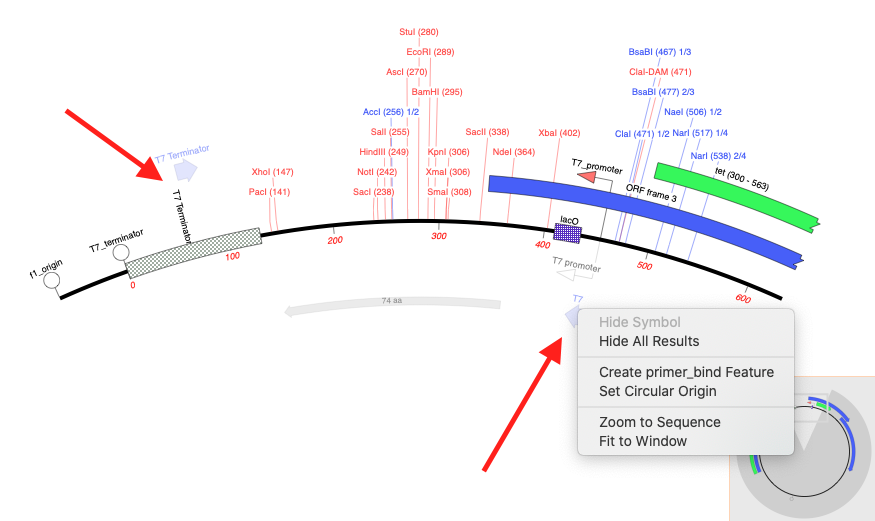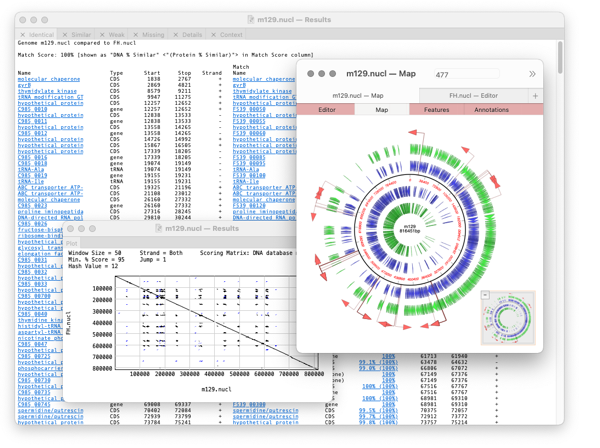MacVector has a wide array of different tools for working with protein and DNA sequences. Here’s a few tasks that a molecular biologist may find useful.
Cloning constructs
Select two restriction sites and click DIGEST. Drag the digested fragment from the Cloning Clipboard to your vector and click LIGATE.
Gibson Assembly/Ligase Independent Cloning
FILE | NEW | GIBSON/LIGASE INDEPENDENT ASSEMBLY. Choose the type of project, add a cloning vector, then drag a gene from a sequence to clone.
Designing Primers
Select a short region of sequence. Click ANALYZE | QUICKTEST PRIMER. Add a restriction site or mutation, slide the primer until the oligo is optimal.
Testing Primers
Open your template sequence, Go to ANALYZE | PRIMER DESIGN/TEST(PAIRS). For the left primer click USE THIS Primer. Type or paste in your forward primer, Repeat for the reverse primer. Click TEST

Agarose Gel Simulation
Select FILE | NEW | AGAROSE GEL, Drag a restriction site from the Map tab of a sequence and drop on the Agarose Gel window
Comparing Sequences
Select FILE | NEW | ALIGNMENT, Click ADD SEQS and then ALIGN.
List genetic differences between one organism and another related strain
Open two genomes and run ANALYZE | COMPARE GENOMES BY FEATURE..

Searching for your sequence.
Select DATABASE | ONLINE KEYWORD SEARCH (ENTREZ) , enter the accession number of your favorite gene and hit search. Double click the hit to open it directly in MacVector.
Annotating sequences
Right click (or CTRL+left Click) on any faded ORF or Feature on your sequence. Select CREATE FEATURE.
To align a small sequencing project against a reference.
Run FILE | NEW | ALIGN SEQUENCES TO A REFERENCE... Choose a reference sequence, then add your trace files from the sequencing facility and click ALIGN.
De novo assembly of sequencing reads
Run FILE | NEW | ASSEMBLY PROJECT, Choose a reference sequence, add your sequencing reads and also any reference sequences.
